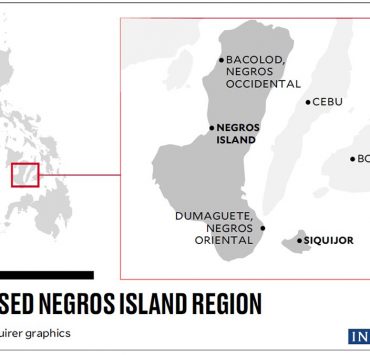DOH seeks help to fill shortfall in pertussis vax

The Department of Health (DOH) is turning to the private sector for help as the agency sees a shortage in the supply of vaccine doses to protect children amid local outbreaks of pertussis or whooping cough in a growing number of cities and towns.
Health Secretary Teodoro Herbosa noted that the government’s stock of pentavalent vaccines—or five-in-one shots that immunize the body against pertussis, diphtheria, tetanus, hepatitis B and Haemophilus influenzae type B—while still “enough,” was already “running low.”
As of March 25, the DOH reported it had only 64,000 doses of pentavalent vaccines left, which were now being distributed in areas with high incidence of pertussis.
“We will welcome any offers of support and assistance from our private sector partners,” Herbosa said.
He said the three million pentavalent vaccine doses that the government procured through the United Nations International Children’s Fund would arrive only in June.
“We anticipate a shortage in government pentavalent vaccine supply by May, and this is the gap we are now addressing,” Herbosa said.
“There would be this short gap [of vaccine shortage]. It’s difficult to recommend to parents to go to their barangay health centers where they were supposed to get their vaccines for free, but they would only get frustrated because there’s no vaccine available,” he added.
Second option
In the meantime, the more readily available DTP vaccines—which offer protection against diphtheria, tetanus and pertussis—may be administered to patients while the government waits for the new batch.
“Also, there are pentavalent and TDaP (DTP recommended for infants) vaccines available for purchase in the private sector; there is no physical shortage,” Herbosa said.
DTP shots, however, are not provided for free in health centers and not covered under any of the benefit packages of the Philippine Health Insurance Corp. A shot of DTP offered in private clinics and pharmacies costs at least P2,000.
Based on DOH data, a total of 1,112 pertussis cases were recorded from Jan. 1 to March 30—a staggering 3,375-percent increase from only 32 cases in the same period last year.
A total of 54 patients, mostly unvaccinated children, had died.
“The DOH is cautious in interpreting trends. The number of cases may still change as there may be late consultations and reports. Furthermore, the effects of increasing immunization efforts to stem the outbreak may not be seen in the data until four to six weeks after they are started,” the agency said.
Of the total number of pertussis cases, 77 percent are children younger than 5 years old. Meanwhile, adults age 20 and older account for only around 4 percent of cases, the data showed.
In the past six weeks, Eastern Visayas, Cagayan Valley, Caraga, Central Luzon, and the Cordillera regions “showed a continuous increase” in the number of pertussis cases, the DOH said.
In Quezon City, one of the cities that have declared a pertussis outbreak, the local government has purchased over P13-million worth of vaccines and antibiotics to combat the disease, which has killed six children in the city, Mayor Joy Belmonte announced on Tuesday. —WITH A REPORT FROM RUSSEL LORETO INQ

















